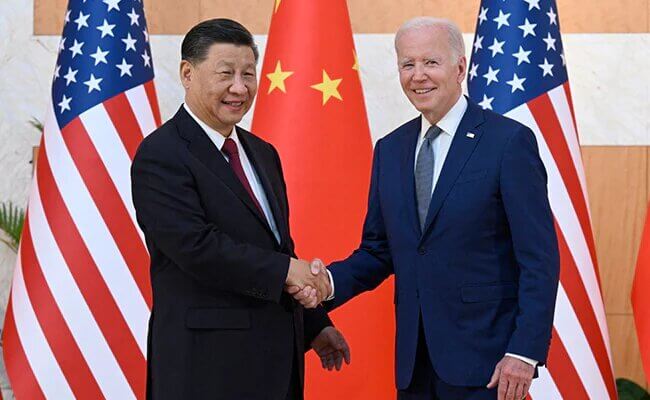Four Chinese nationals have been charged with allegedly exporting and smuggling electronic components from the US to Iran for use in military weapons, according to a Justice Department indictment released on Wednesday.
Indictment on Chinese Nationals
The Chinese nationals are suspected of transporting US export-controlled items through China and Hong Kong to sanctioned entities linked to Iran’s Islamic Revolutionary Guard Corps (IRGC) and defence ministry, the department said.
#US authorities have charged four Chinese nationals with crimes related to the smuggling of US-made electronic components, including some with possible military use, to #Iran, the Justice Department says.https://t.co/2yrOzDcPiB
— Al Arabiya English (@AlArabiya_Eng) February 1, 2024
According to the indictment, between May 2007 and July 2020, the defendants used a number of front companies in China to funnel electronics, some of which might be used in the construction of drones, ballistic missile systems, and other military uses.
The court documents suggest that “Baoxia Liu, aka Emily Liu; Yiu Wa Yung, aka Stephen Yung; Yongxin Li, aka Emma Lee; and Yanlai Zhong, aka Sydney Chung,” have been charged with indictments. Per the indictment, throughout the conspiracy, the defendants disguised the fact that the goods were meant for Iran and Iranian businesses, and made material misrepresentations to US companies about the end destination and end users.
“These deceptive practices caused the US companies to export goods to the defendants’ People’s Republic of China (PRC) based front companies under false pretences and under the guise that the ultimate destination of these products was China as opposed to Iran,” the indictment read.
The Justice Department said that the defendants were indicted with conspiring to violate the International Emergency Economic Powers Act (IEEPA), violating IEEPA, smuggling commodities from the US, and one count of providing false or misleading export information.
The US government has filed arrest warrants for the accused, all of whom remain fugitives. If convicted, the defendants could face a maximum sentence of 20 years in prison for violating the IEEPA, up to 10 years in prison for smuggling products from the US, and up to 5 years in prison for each count of conspiracy and submitting false or misleading export information.
“Today’s indictment, tied to the work of the Disruptive Technology Strike Force, reaffirms that proliferators cannot hide behind front companies in third countries to funnel technology to our adversaries,” said Assistant Secretary for Export Enforcement Matthew S. Axelrod of the Department of Commerce.
Chinese Nationals Charged with Illegally Exporting U.S.-Origin Electronic Components to Iran and Iranian Military Affiliateshttps://t.co/X1jq98O0WY pic.twitter.com/d5ffJjlHN9
— FBI (@FBI) February 1, 2024
US Probe Illegal Transfer of Sensitive Technologies
In February 2023, the Justice Department and the Commerce Department’s Bureau of Industry and Security (BIS) developed the Disruptive Technology Strike Force, an interagency effort to investigate and prosecute the illegal transfer of sensitive technologies to foreign state adversaries, including Iran.
In June 2023, the Departments of Justice, Commerce, State, and Treasury issued an advisory to share information concerning the threat raised by Iran’s procurement, development, and proliferation of unmanned aerial vehicles (UAVs).
Four months later, in October 2023, the Justice Department coordinated with the same interagency partners to release an advisory outlining the threat posed by Iran’s ballistic missile procurement efforts. The warnings provided a summary of the essential components sought by Iran, the regime’s use of deceptive techniques to get certain kinds of technologies, and recommendations for developing effective compliance mechanisms to reduce sanctions and export control risk.
The department advised the private sector to be vigilant in meeting its compliance obligations due to the threat posed by Iran’s extensive overseas network of procurement agents, front companies, suppliers, and intermediaries for obtaining UAV components, all of which use a variety of methods to evade export controls and sanctions.

